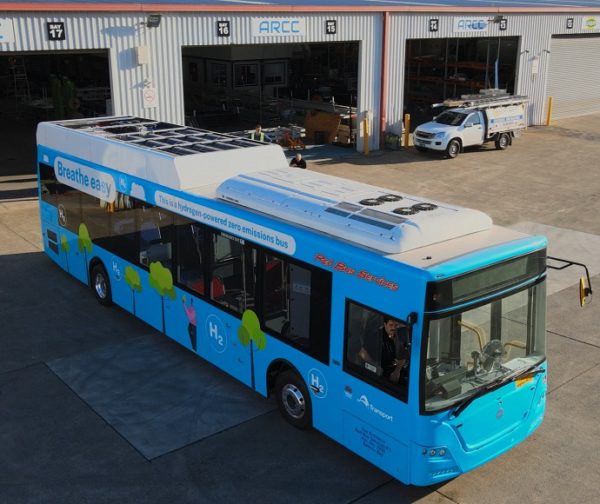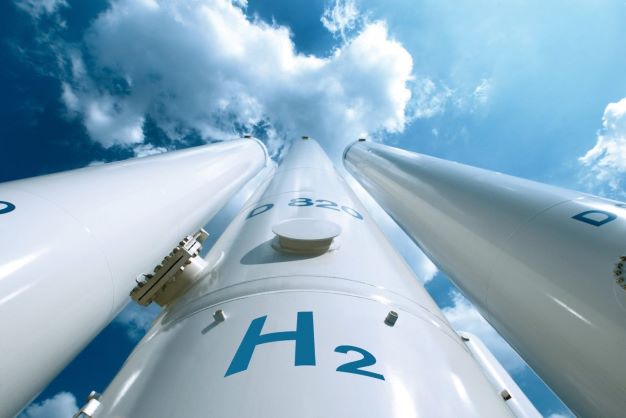The New South Wales (NSW) government has committed $64 million to help finance green hydrogen hub projects in the Illawarra region, and near Moree in the state’s west. The funding was announced as applications opened for the NSW government’s $1.5 billion in concessions for large-scale green hydrogen producers.
NSW Treasurer and Energy Minister Matt Kean said the “globally competitive” funding and concessions, part of the NSW Hydrogen Strategy first announced in 2021, will drive green hydrogen costs down by about 40% to the state government’s target of less than $2.80 per kilogram by 2030.
“Green hydrogen producers across NSW are now able to access $1.5 billion in concessions to reduce costs for large-scale investment, including up to a 90% reduction in their electricity network charges if they connect to parts of the grid with spare network capacity,” he said.
“This policy will see us grow our economy by up to $600 million every single year and see $80 billion invested in NSW by 2050. It’s an absolute gamechanger.”
The funding will support initial development of a 10 MW electrolyser in the Illawarra, which will have an annual green hydrogen production capacity of about 1,400 tonnes, and a 12 MW electrolyser near Moree.
The Moree plant, to be established on Sundown Pastoral Company’s 65,000-hectare Keytah cotton farm, will be used in a project to convert green hydrogen and air-captured hydrogen into green ammonia for use as fertiliser on properties in the region. The project is expected to ramp up to 112 MW of capacity by 2030, and abate an estimated 283,929 tonnes of emissions by 2030.
The 10 MW Illawarra project, being developed as part of gas and engineering firm BOC’s Illawarra Hydrogen Technology Hub at Port Kembla, will be capable of producing four tonnes of green hydrogen daily to be used to help drive decarbonisation in the transport and industrial sectors. The project will initially feature four hydrogen refuelling stations capable of powering up to 40 heavy vehicles per day.
BOC aims to expand electrolyser capacity to 650 MW to support decarbonisation of local steel, glass, and cement production and abate 716,514 tonnes of emissions by 2030.
Kean said the incentives will be pivotal in helping NSW scale up the emerging green hydrogen industry, securing the state’s energy needs into the future while ensuring Australian industry can continue to compete on the global stage.
“These incentives will set us up for success as we compete with the high-profile US Inflation Reduction Act hydrogen incentives, because the NSW concessions can apply to projects finishing well beyond 2030, while the US program finishes in 2032,” he said.
“Green hydrogen can help drive deep decarbonisation in hard-to-abate market segments within the transport, industrial and energy sectors which account for around 18% of NSW’s annual emissions.”
“Providing these hard-to-abate sectors with a pathway to zero emissions is crucial to safeguarding their NSW business operations and employees, and setting them up to thrive in a global low-carbon economy.”

Image: Sam Farraway
Meanwhile, the push to decarbonise the transport industry reached a new milestone today with the state’s first hydrogen-powered electric bus taking to the streets of the Central Coast in a local trial of the technology.
NSW Regional Transport Minister Sam Farraway said the trial is an important milestone in plans to transition the state’s 8000-strong public transport fleet to zero emissions technology by 2047 and said it will help evaluate how well hydrogen stacks up against electric as a clean energy technology.
The NSW government is now in caretaker mode ahead of the state election on March. 25, 2023.
This content is protected by copyright and may not be reused. If you want to cooperate with us and would like to reuse some of our content, please contact: editors@pv-magazine.com.









By submitting this form you agree to pv magazine using your data for the purposes of publishing your comment.
Your personal data will only be disclosed or otherwise transmitted to third parties for the purposes of spam filtering or if this is necessary for technical maintenance of the website. Any other transfer to third parties will not take place unless this is justified on the basis of applicable data protection regulations or if pv magazine is legally obliged to do so.
You may revoke this consent at any time with effect for the future, in which case your personal data will be deleted immediately. Otherwise, your data will be deleted if pv magazine has processed your request or the purpose of data storage is fulfilled.
Further information on data privacy can be found in our Data Protection Policy.